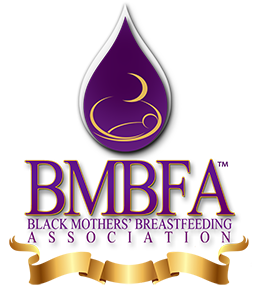Michigan Seeks Emergency Human Milk Donations For Babies Affected By Lead Poisoning
The Human Milk Banking Association of North America (HMBANA) in Partnership with Black Mothers’ Breastfeeding Association (BMBFA) Advocates for Lead-Affected Mothers and Babies to Receive Donor Human Milk.
The water crisis in Flint, Michigan has possibly exposed hundreds of pregnant and lactating women to dangerously high levels of lead and is a serious and ongoing crisis. HMBANA is working with Representatives Erika Geiss (D-Taylor), Sheldon Neeley (D-Flint), Phil Phelps (D-Flushing), Kiddada Green of Black Mothers Breastfeeding Association and other community partners to provide safe, evidenced-based pasteurized donor human milk for mothers and babies impacted by high lead levels.
 With rare exception, human milk is the best first food for infants and young children−including premature and sick newborns. When mothers’ own milk is not available, provision of evidence-based, pasteurized, screened donor human milk is the next best option, and soy- or cows’ milk-based manufactured formula or other non-evidence-based products a last resort.
With rare exception, human milk is the best first food for infants and young children−including premature and sick newborns. When mothers’ own milk is not available, provision of evidence-based, pasteurized, screened donor human milk is the next best option, and soy- or cows’ milk-based manufactured formula or other non-evidence-based products a last resort.
Since 2015, Rep. Geiss has been working on legislation to provide access to and safeguards for donor human milk across Michigan. “This crisis is creating concern for the nursing mothers of Flint, who don’t know if their breast milk is safe. For them, using formula undermines their ability to provide breastmilk for their children.
Until nursing mothers in Flint have the complete information and knowledge that their milk is has acceptable levels of lead, they and their families must have access to safe, pasteurized donor human milk.”
“A portion of the state-approved $28 M provided to deal with the Flint water crisis should be immediately released to support Flint’s youngest and most vulnerable infants,” states Kiddada Green, Founding Executive Director of Black Mothers’ Breastfeeding Association. “We must be assured that pregnant and breastfeeding mothers are no longer victimized. Forcing mothers to compromise the health benefits associated with exclusive breastfeeding for the use of infant formula when safe donor milk is available here in Michigan should be unlawful.”
According to the American College of Obstetricians and Gynecologists (ACOG) Opinion on Lead Screening During Pregnancy and Lactation, “Prenatal lead exposure has known adverse effects on maternal health and infant outcomes across a wide range of maternal blood lead levels,” lead poisoning is known to adversely affect brain development.
Several studies have found high lead levels in breast milk are correlated with a high level of maternal exposure. At present, most studies agree that lead poisoning through breast milk is only a concern if the mother has high blood-lead levels as determined through a serum blood screening.
ACOG Recommends:
- Initiation of breastfeeding should be encouraged postpartum in a woman with a blood lead level less than 40 micrograms/dL.
- A breastfeeding woman with a confirmed blood lead level of 40 micrograms/dL or higher should be advised to pump and discard her breast milk until her blood lead level has decreased to less than 40 micrograms/dL.
Bronson Methodist Hospital in Kalamazoo has a milk bank, one of the primary sources for safe pasteurized human milk in Michigan. “We are pleased to be able to provide donor human milk for lactating mothers in Flint. Once a mother has been supported to rid lead from her body while maintaining her milk supply, it is safe for baby and mother to resume breastfeeding” says Cindy Duff, Supervisor of the Bronson Mothers’ Milk Bank.
Since 2006, the Bronson Mothers’ Milk Bank has been coordinating a community-based response for the provision of safe, pasteurized donor human milk to address the needs of Michigan’s most vulnerable residents−babies. Bronson Mothers’ Milk Bank is a member milk bank of the Human Milk Banking Association of North America, (HMBANA).
Since 1985, HMBANA member milk banks have operated under a set of rigorous evidence-based guidelines for donor recruitment, safe screening, processing and distribution of donor human milk for the most vulnerable babies. HMBANA (the accreditation and oversight body for all nonprofit milk banks in North America) takes the position that accepting milk donations from carefully screened volunteer donors is the most ethical way to ensure that milk donations will be shared with the most critically ill of infants. Through following the nonprofit model of milk banking, HMBANA milk banks prioritize infant health when distributing donor milk to infants with medical need.
HMBANA milk banks follow procedures based on scientific evidence and recommendations from the FDA and CDC. All HMBANA member milk banks are annually assessed for compliance with rigorous standards for screening, processing and distributing donor human milk to fragile infants. These standards are associated with significant reductions in morbidity and mortality of vulnerable infants.
About Human Milk Banking Association of North America: In 2014, HMBANA’s 24 member milk banks have dispensed 3.8 million ounces of lifesaving donor human milk to critically ill hospitalized infants in all 50 states and most of Canada. Visit www.hmbana.org for more information about HMBANA and member milk bank locations. Contact Bronson Mothers’ Milk at 1 (269) 341-6146.
Photo Shutterstock/Linda Parton
Breastfeeding Resources
Kindred’s National Resource List
Kindred’s Breastfeeding Bookstore and Breastfeeding Features and Video Series

